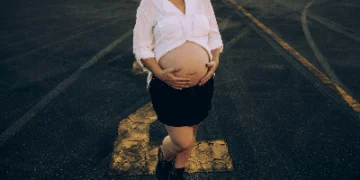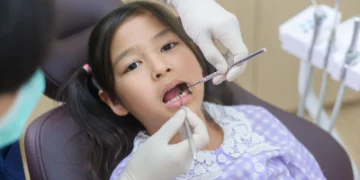When it comes to ensuring your child’s overall health and well-being, dental health plays a crucial role. Good oral hygiene habits from a young age can set the foundation for a lifetime of healthy teeth and gums. In this comprehensive guide, we will explore everything you need to know about children’s dental health, from the importance of regular dental check-ups to tips for maintaining a sparkling smile.
The Importance of Children’s Dental Health
Proper dental care is essential for children for several reasons. First and foremost, maintaining good oral hygiene can prevent common dental issues such as cavities, gum disease, and tooth decay. By instilling good dental habits early on, you can help your child avoid painful and costly dental procedures in the future.
Additionally, good oral health is closely linked to overall health. Poor dental hygiene has been associated with a variety of systemic conditions, including heart disease, diabetes, and respiratory infections. By taking care of your child’s teeth and gums, you are not only protecting their smile but also safeguarding their overall well-being.
Common Dental Issues in Children
Children are prone to a variety of dental issues, many of which can be prevented with proper dental care. Some of the most common dental problems in children include:
Cavities
Cavities, also known as dental caries, are one of the most prevalent dental issues in children. They occur when bacteria in the mouth produce acids that erode the enamel of the teeth, leading to decay. Cavities can cause pain, sensitivity, and difficulty eating, so it’s important to address them promptly.
Gum Disease
Gum disease, also known as periodontal disease, is an infection of the gums caused by bacteria in plaque. In its early stages, gum disease can cause redness, swelling, and bleeding of the gums. If left untreated, it can progress to more severe forms of periodontal disease, which can result in tooth loss.
Malocclusions
Malocclusions, or misalignments of the teeth and jaws, are another common dental issue in children. Malocclusions can affect the child’s bite, speech, and facial appearance. In some cases, they may require orthodontic treatment to correct.
Preventive Measures for Children’s Dental Health

Prevention is key when it comes to children’s dental health. By following these simple tips, you can help your child maintain a healthy smile:
Brushing and Flossing
Encourage your child to brush their teeth at least twice a day and floss daily. Use a fluoride toothpaste and supervise your child’s brushing until they are old enough to do it effectively on their own.
Healthy Diet
Avoid sugary snacks and drinks, which can contribute to cavities. Instead, opt for nutritious foods that promote dental health, such as fruits, vegetables, and dairy products.
Regular Dental Check-ups
Take your child to the dentist for regular check-ups and cleanings. These appointments are essential for detecting and addressing any dental issues before they escalate.
FAQs About Children’s Dental Health
At what age should a child first visit the dentist?
It is recommended that children have their first dental visit by the age of one or within six months of getting their first tooth. Early dental visits can help establish good oral hygiene habits and identify any potential issues early on.
How can I help my child overcome fear of the dentist?
Many children are afraid of the dentist, but there are several strategies you can use to help ease their anxiety. Try reading books about going to the dentist, role-playing dental visits at home, and praising your child for their bravery during appointments.
When should my child start using fluoride toothpaste?
Children can start using fluoride toothpaste as soon as their first tooth erupts. Use a small amount of toothpaste (about the size of a grain of rice) until your child is able to spit it out, usually around the age of three.
Conclusion
Children’s dental health is a vital component of their overall well-being. By teaching your child good oral hygiene habits and prioritizing regular dental check-ups, you can help them maintain a healthy smile for years to come. Remember to brush and floss regularly, encourage a healthy diet, and address any dental issues promptly. With the right care and attention, your child can enjoy a lifetime of sparkling smiles.







































